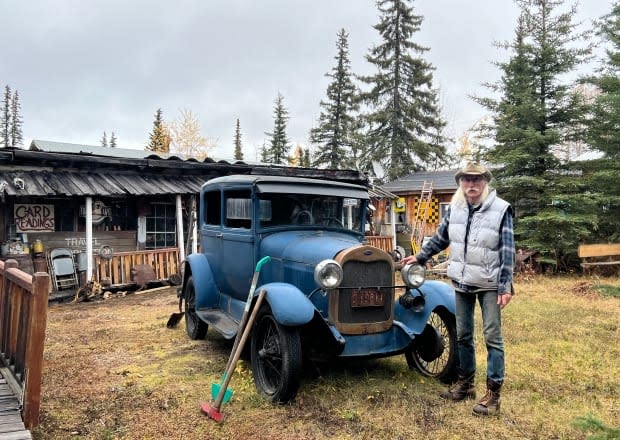Another's treasure: Meet Yukon's most dedicated collector of old things
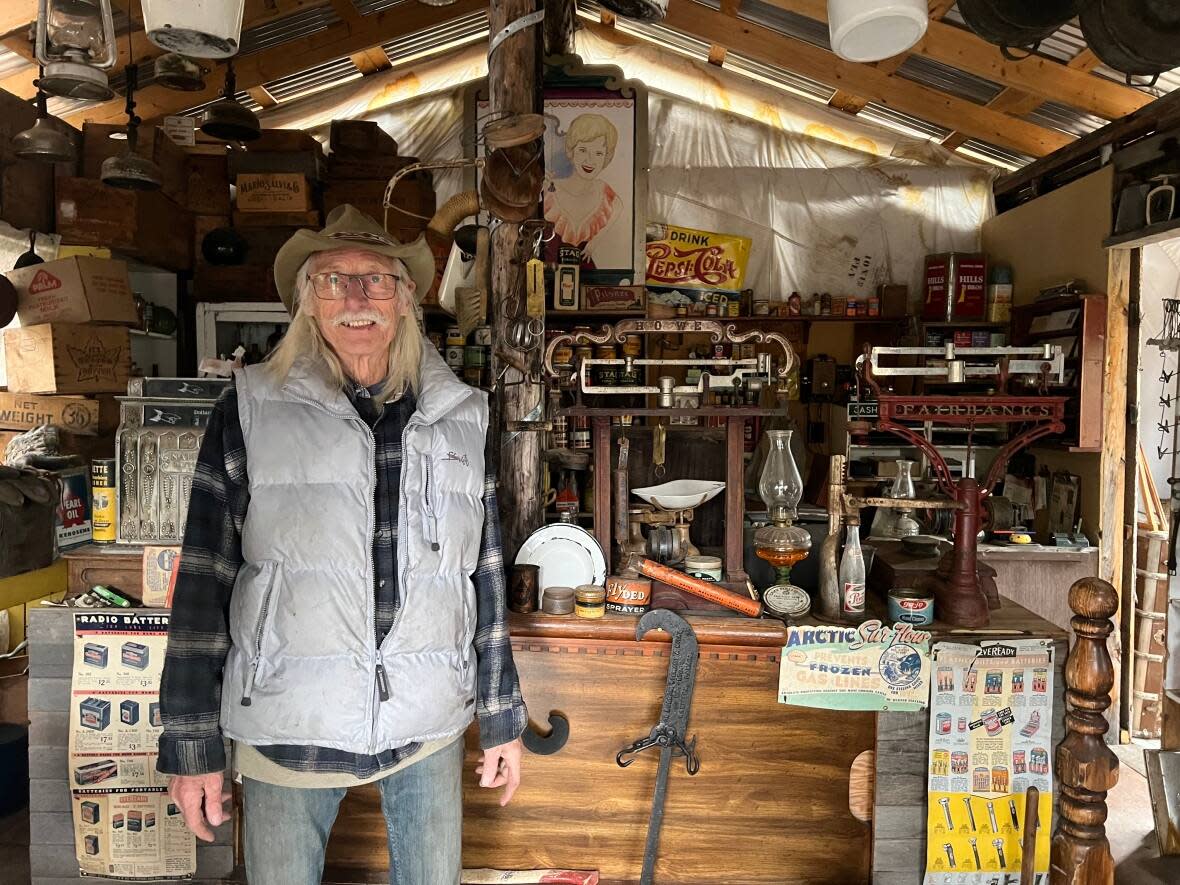
There are collectors and history buffs — and then there's Sid van der Meer.
He got thousands of weathered old artifacts from Yukon's colourful history, collected over a lifetime and spread out on display in his ramshackle, home-based museum in Beaver Creek, Yukon.
"I just collect," he said while guiding another drop-in visitor around his property, "I'm still collecting, if I find anything.
"We used to live in a house back in the Netherlands, it was built in 1491. So I've probably been … you know, interested in old history all my life, I guess."
Van der Meer was a child when his family immigrated to Canada in 1953 and in 1961 he moved from Alberta to Yukon. He's been in the territory ever since, and has no plans to leave.
He spent a few decades working at a remote Alaska Highway lodge down the road from Beaver Creek before moving to the community in the 1990s. His collection, with plenty of artifacts from the Klondike Gold Rush and the construction of the highway, was gradually amassed by simply picking up random things that other people would throw away — old tools, clothes, tins and bottles, antique cars, and hand-painted road signs.
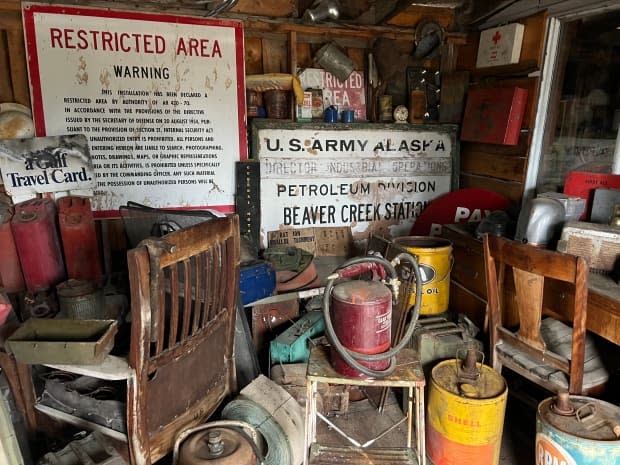
"A lot of it I just collected out of old buildings and stuff. I tore down some of the old army camp buildings and built all this," he said, referring to the old-timey wooden buildings that fill his property and make up his "Bordertown Garage and Museum."
"I built my whole house out of recycled material from old army buildings and stuff. Everything — I didn't buy nothing new for my construction jobs … I recycled long before the word ever became popular."
He's tried to replicate some typical Yukon businesses of yore — a barber and chemist's shop, and a general store and post office complete with mail bags and real letters postmarked a century ago. He's got a lot of stuff from what was once Livesay's — Beaver Creek's first business — which opened in 1949.
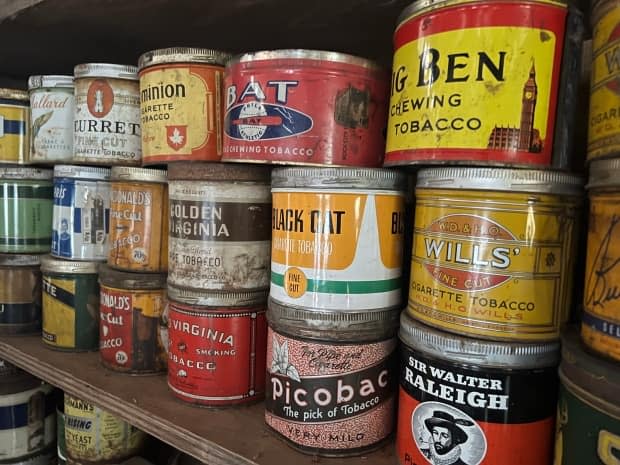
"They had everything in there. A general store, you could buy guns, ammunition, clothing, groceries, whatever —everything was there. The post office was in there," he said.
"This kind of replicates a little bit of Livesay's store … keep the history alive, you know."
There's a shelf of old medicine bottles, some still containing a dose or two of some mysterious, high-test elixir. They never freeze, Van der Meer says — even on those –50 C days in the dead of winter.
"So it must be good stuff," he said.
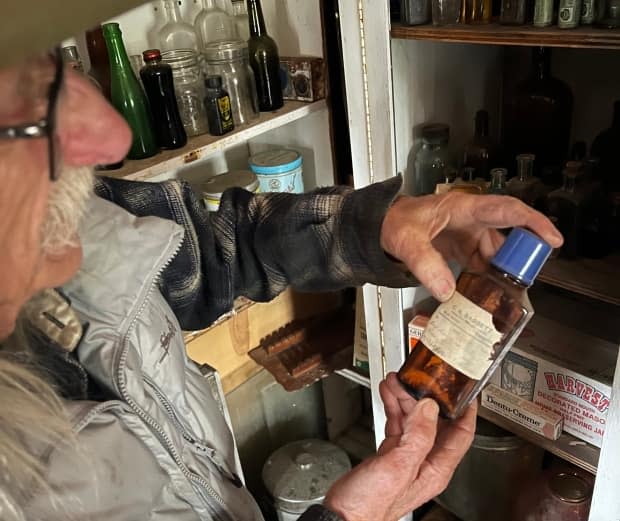
He's especially keen on antique cars, and he's got "about 10" with some of them in good running condition. It's not unusual to see van der Meer rolling through Beaver Creek in some beauty he's restored.
Van der Meer calls his place a museum, though it couldn't be more different from most modern museums, where clean and well-restored items might be preserved at a distance behind glass and explained with interpretive panels and signs. Van der Meer's collection wears its grit and grime proudly, with most items still in the broken or weathered condition he found them.
"I like all museums, but most museums have fancy modern buildings with old stuff inside there. I want the buildings to look like part of the museum too," he said.
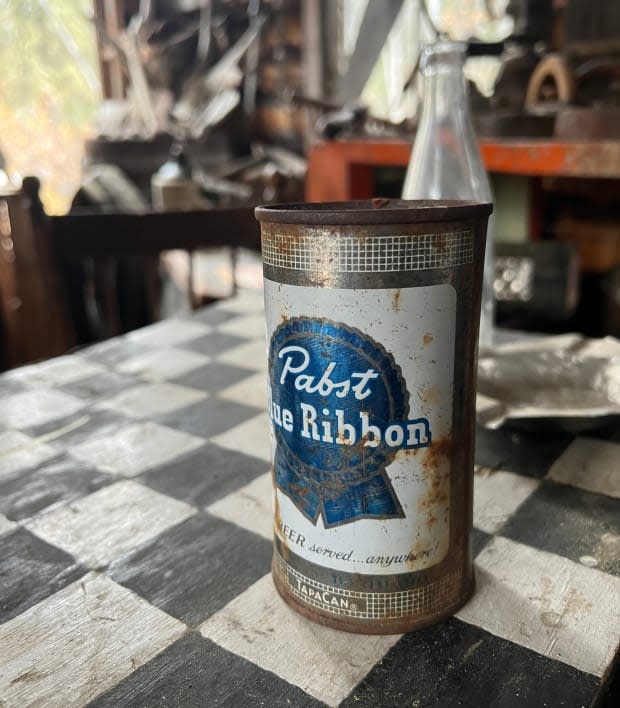
"You can't do that in cities, of course, but this is my own private collection, so I can do what I want with it."
He's occasionally been asked to donate some of his more unique finds to museums or sell them to antique dealers. He's not interested.
"That's not what it's for. That's not what it's all about. I just like to collect it and show it to people, as long as I'm able to," he said.
